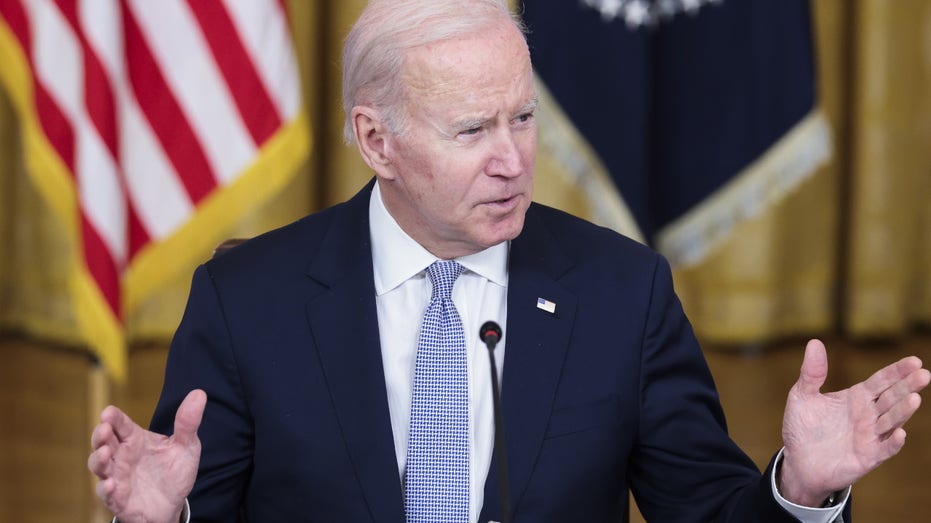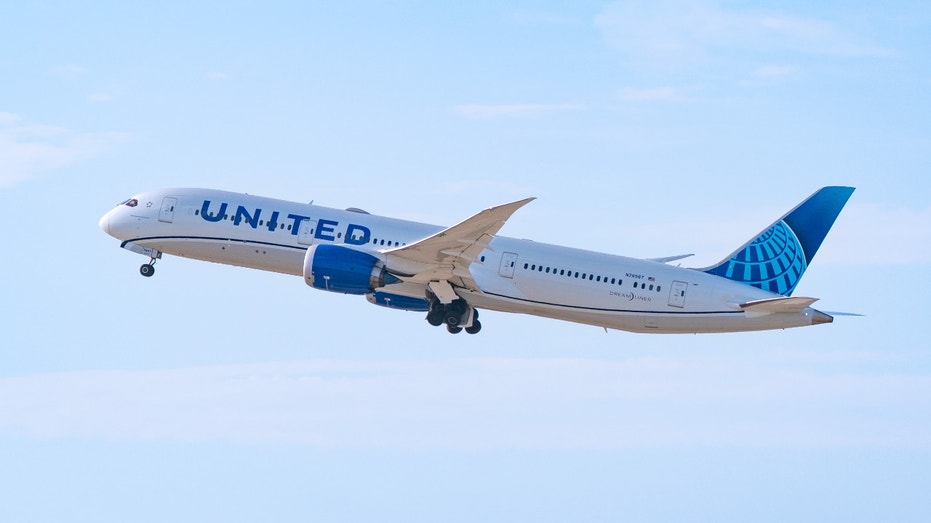Airlines tell White House to get 'facts straight,' say competition proposals will drive up costs
Airlines for America says proposed regulations from Transportation Department are 'short-sighted' and will 'drive-up costs and reduce choices'
GOP lawmakers push to penalize Buttigieg over FAA outage
Fox News congressional correspondent Chad Pergram reports on the Biden administration's defense of Transportation Secretary Pete Buttigieg and GOP lawmakers' push to penalize him after the FAA outage.
A trade group representing U.S. airlines is in uproar over a series of proposed regulations from the White House that President Biden says will promote competition. The airlines say Biden needs to "get the facts straight" and that his proposed regulations will drive up consumer costs.
The White House on Wednesday rolled out Biden's proposal to eliminate so-called junk fees, hidden or unexpected fees for services that the White House claims are costly to consumers and can stifle competition. Included was an announcement that the Department of Transportation will publish new rules banning airlines from charging family members a fee to sit near young children, which follows a July 2022 notice stating it is the department's policy that airlines guarantee that children under age 13 are seated next to an accompanying adult at no extra charge.
"Some airlines charge extra to pick your seat, including for parents who just want to sit next to their child on the plane, and charge extra," Biden said in remarks at the White House Competition Council Meeting Wednesday. "You don’t know that going in, though. And it’s wrong."
However, industry trade group Airlines for America (A4A) said Biden had his facts wrong.
FLIGHT CANCELED OR DISRUPTED? KNOW YOUR RIGHTS

President Biden during a meeting of his Competition Council in the East Room of the White House in Washington, D.C., on Wednesday, Feb. 1, 2023. (Oliver Contreras/Sipa/Bloomberg via Getty Images / Getty Images)
"The White House proposals are short-sighted and would inevitably drive-up costs and reduce choices for the consumer," the group said. "The federal government should be focused on 21st century policies and procedures that drive our nation’s aviation system forward, rather than making efforts that threaten to reduce access and affordability for consumers."
A4A represents Delta Air Lines, United Airlines, American Airlines, Southwest Airlines and others. The group said its member airlines "make every effort to accommodate customers traveling together, especially those traveling with children, without additional charges."
| Ticker | Security | Last | Change | Change % |
|---|---|---|---|---|
| DAL | DELTA AIR LINES INC. | 75.00 | -0.35 | -0.46% |
| UAL | UNITED AIRLINES HOLDINGS INC. | 116.20 | +0.29 | +0.25% |
| AAL | AMERICAN AIRLINES GROUP INC. | 14.99 | -0.25 | -1.64% |
| LUV | SOUTHWEST AIRLINES CO. | 53.36 | -0.90 | -1.66% |
The Transportation Department has launched several initiatives intended to increase transparency and improve customer service on airlines. Transportation Secretary Pete Buttigieg highlighted these efforts in a Fox News op-ed published in November – noting that the department created an Airline Customer Service Dashboard to let consumers compare the services different airlines offer when they cause a cancelation or delay.
Buttigieg also wrote that the department had introduced a proposal to require that airlines disclose hidden fees up front, so customers can see what they might be charged before they buy a plane ticket.
LAWMAKERS LOOK TO INCREASE PENALTIES FOR AIRLINE DISRUPTIONS

United Airlines Boeing 787-9 takes off from Los Angeles international Airport on July 30, 2022 in Los Angeles. (Photo by AaronP/Bauer-Griffin/GC Images / Getty Images)
On Wednesday, Buttigieg appeared on CNBC's Squawk Box to discuss some of these measures, taking credit for pushing airlines to provide more benefits to passengers, including refunds for canceled or delayed flights and vouchers for meals or hotel stays when passengers get stuck. He also called on Congress to address "nickel and dime'ing" by airlines.
A4A released a point-by-point rebuttal to Buttigieg's comments, arguing many of these policies were in place before the dashboard and that "there is no evidence of market failure or unfair or deceptive trade practices in this area." The group pointed out the 11 largest U.S. passenger airlines issued $32.3 billion in customer refunds, roughly $900 million per month, between January 2020 and December 2022. Those figures included $11.2 billion in 2022 alone, exceeding 2019 by almost 50%.
As for fees, A4A said that in 2021 domestic air travel was 55% less expensive than it was in 1979, and pointed out that in 2022, inflation-adjusted fares averaged 6.8% below 2019.
"U.S. airlines have maintained this level of affordability while facing unit costs that in 2022, for A4A member carriers, were 31% higher than in 2019," the group said, observing that the inflated price of jet fuel is a major contributing factor to higher costs.
WINTER WEATHER LEADS TO SCRUBBED FLIGHTS IN TEXAS, BEYOND

Hundreds of Southwest Airlines checked bags are piled together at baggage claim at Midway International Airport, Dec. 28, 2022, in Chicago. (AP Photo/Erin Hooley, File / AP Newsroom)
Even so, lawmakers are following the Biden administration's call for new regulations in response to several frustrations with cancelations and delays last year, including Southwest Airlines' operational meltdown over the holidays.
Democratic senators led by Sens. Richard Blumenthal, D-Conn., and Ed Markey, D-Mass., reintroduced a pair of bills called the Airline Passengers' Bill of Rights and the Forbidding Airlines from Imposing Ridiculous (FAIR) Fees Act on Wednesday.
The Airline Passengers' Bill of Rights Act would require compensation, refunds, and create a path to recourse following airline-caused flight delays and cancelations. Airlines would also be required to pay customers who are blocked from boarding an overbooked flight at least $1,350 and also be mandated to immediately refund bag fees for damaged or lost bags under the bill.
The FAIR Fees Act would prohibit airlines from charging unreasonably high fees for basic services like checked bags, seat selection and ticket changes. Its provisions are also included in the Airline Passengers' Bill of Rights Act.
Both bills were introduced in the last Congress but failed to receive a vote.
GET FOX BUSINESS ON THE GO BY CLICKING HERE
"U.S. airlines strive to provide the highest levels of customer service, and it is in each carrier’s interest to provide a positive flight experience for all passengers," A4A said, pushing back against proposed regulations.
"Instituting government-controlled pricing, establishing a private right of action and dictating private sector contracts – would decrease competition and inevitably lead to higher ticket prices and reduced services to small and rural communities."
FOX Business' Eric Revell contributed to this report.





















